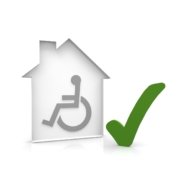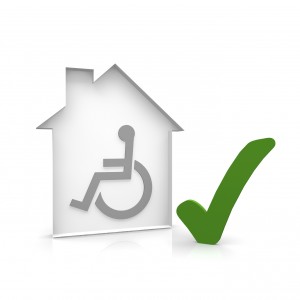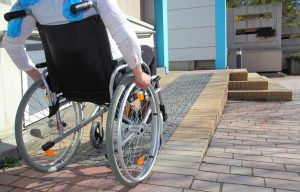 Most holiday homeowners will be familiar with the traditional ‘Access Statement’. However often this is a cold document outlining all of the specific accessibility features your property has. Visit Britain has now introduced Accessibility Guides to help improve the format of the documents being produced. This is with a view to making them more informative for those reading and digesting their contents.
Most holiday homeowners will be familiar with the traditional ‘Access Statement’. However often this is a cold document outlining all of the specific accessibility features your property has. Visit Britain has now introduced Accessibility Guides to help improve the format of the documents being produced. This is with a view to making them more informative for those reading and digesting their contents.
There are an estimated 13.3 million disabled people in the UK (one in five), therefore the need to help potential guests understand whether your holiday cottage is suitable for their needs has never been greater.
The key to all of this is helping those searching for self-catering accommodation to quickly and easily understand whether your cottage has all of the features they need in order to fully enjoy their holiday.
This won’t just apply to wheelchair users; it could be any criteria that would affect the requirements someone has from your property. Whether that be through a physical disability, hearing loss, having a young family or being elderly. They will all have different needs that some cottages will be able to cater for better meet than others.
The reasons for having Accessibility Guides for each and every holiday home
Let’s take a look at the benefits of having one of Visit Britain’s Accessibility Guides.
-
Complying with the Equality Act 2010
As a holiday homeowner welcoming paying guests you’ll need to be familiar with, and comply with the Equality Act 2010. If you’re not sure about the Act and what it means for you, then please do take a look at our earlier blog post here:
A key part of the Act is for you to make reasonable adjustments to your holiday home and your business practices in order for it to be easier for disabled guests to use. An Accessibility Guide can be a central axis in fulfilling this requirement by explaining who your property is suitable for and outlining how it meets their requirements.
-
Providing essential information for people with accessibility requirements
Every person searching for their perfect property has a unique set of requirements. The extent to which your cottage meets a potential guests accessibility needs will go a long way to deciding whether they stay at your property. Failing to communicate the benefits of your accommodation may mean they book another that appears to better fulfills their needs. On the other hand failing to communicate the many steps on the approach to your property or those steep stairs could have a worse outcome. You don’t want people booking your holiday home if it’s unsuitable for their needs. With this in mind, having the most effective way of communicating your own accessibility assets and features can lead to greater levels of enquiries, bookings and reduce complaints.
-
What if someone else does it better?
If your competitors better explain their offering, then it’s more likely they’re going to get the booking as the visitor knows that the property is the ideal fit for their needs. Having an effective accessibility guides can therefore help get you ahead of other holiday cottages with a similar offering.
-
Quality Assessment Schemes
Having an Accessibility Statement or Guide is a minimum requirement for all participants in National Quality Assessment Schemes such as those run by VisitEngland, VisitWales and VisitScotland. They also add assurance to those searching for properties and in doing so encourage people to stay with you.
How do you go about writing your Accessibility Statement
Writing a document without a structure or previous experience and knowledge can sometimes be a daunting and time-consuming task. The good news is that VisitBritain have put together a template for their new Accessibility Guides. You can use this useful resource to create your own accessibility guides in the form of a webpage. Follow the links below and begin creating yours:
Boshers offer specialist holiday home insurance to owners across the UK. Need an insurance quote for your holiday let? Give us a call on 01237 429444.


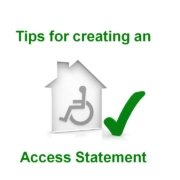
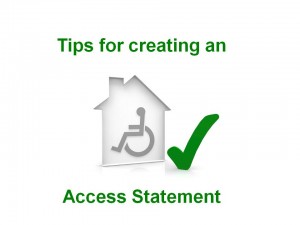 With visitor needs becoming increasingly diverse in nature it’s becoming more and more important to let your potential guests know that your property is the right one for them; that it meets all of their needs and it ticks all of the right boxes in terms of access, facilities and services.
With visitor needs becoming increasingly diverse in nature it’s becoming more and more important to let your potential guests know that your property is the right one for them; that it meets all of their needs and it ticks all of the right boxes in terms of access, facilities and services.